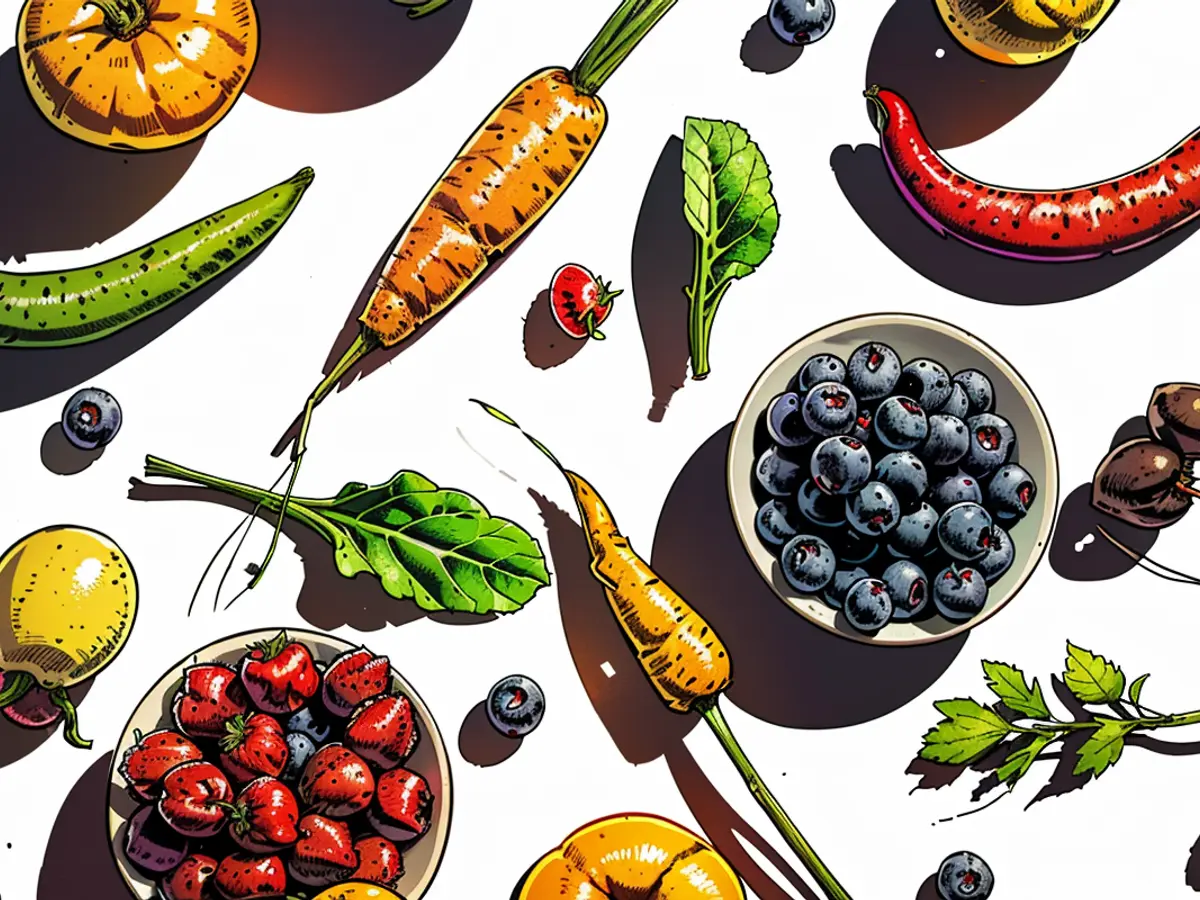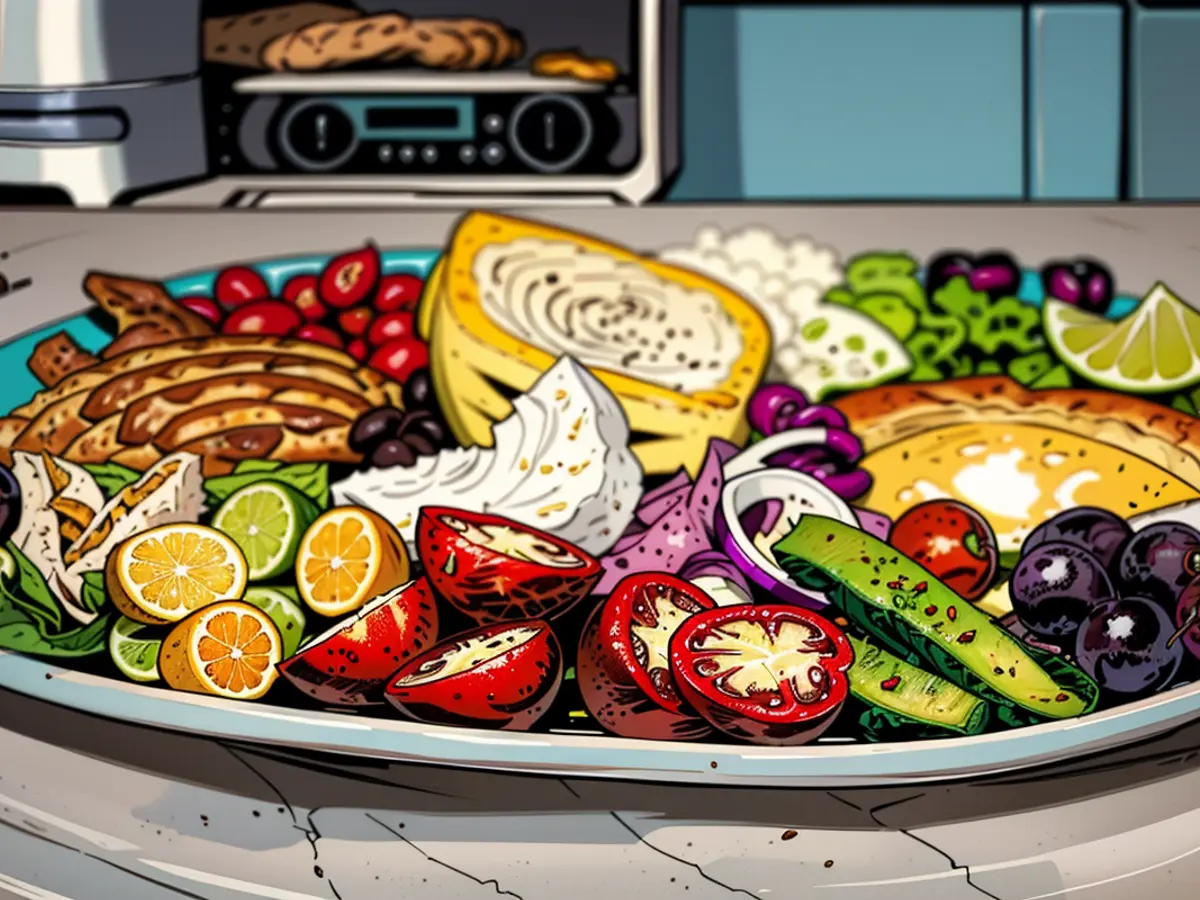A diet high in fruits and vegetables may reduce your heart and kidney disease risk, study
“Patients with high blood pressure, the two big problems that they get is heart disease and kidney disease,” said lead study investigator Dr. Donald Wesson, professor in the department of internal medicine at Dell Medical School at the University of Texas at Austin.
“The study tested whether or not reducing the amount of acid in our diet reduces the kidney disease- and heart disease-related complications of high blood pressure,” he said.
Animal products — notably meat — tend to produce acid, while fruits and vegetables are base-producing when consumed, Wesson said.
To explore how plants could help, researchers conducted a randomized control trial of 153 people with hypertension and a high risk of worsening chronic kidney disease.
The participants were divided into three groups: one that added 2 to 4 cups of fruits and vegetables to their diet, one that added two daily doses (of four or five 650-milligram tablets) of baking soda, and one that continued with standard medical care. Baking soda reduces acid, the study said.
After five years of study, researchers found that both the diet higher in plants, and the baking soda, promoted kidney health, but only the fruits and vegetables improved heart health as well, Wesson said.
“Our conclusion was that diets high in fruits and vegetables should be a foundational part of our management of patients who have high blood pressure or hypertension,” he said.
The study is just the latest in a growing body of literature regarding the health benefits of diets heavy in plants, said Dr. Marion Nestle, the Paulette Goddard Professor Emerita of Nutrition, Food Studies and Public Health at New York University. She was not involved in the research.
“We’ve known this for a long time but it’s good to have less kidney disease added to the benefits,” she said.

Basic and acidic
Why should you avoid acid? The focus of Wesson’s laboratory studies is the way in which the kidney removes acid from blood and discards it through urine.
Years ago, his lab team showed that a diet that produced acid was harmful to animal kidneys and that a base-producing diet was healthy for kidneys, he said. Later investigations found similar results in humans.
The problem is, most Americans eat much more meat and animal products — which produce acid — than they do basic fruits and vegetables, Wesson said.
“The real question going forward is not whether fruits and vegetables work in patients who have high blood pressure,” he said. “The question is, how do we make it so that most patients who have high blood pressure can get and stay on such diets.”
How to get all your fruits and veggies
Even if you don’t have high blood pressure, the more fruits and vegetables you can eat, the better, Wesson said.
The American Heart Association recommends four to five servings of fruits and vegetables a day, and a serving looks like five to eight florets of broccoli, one banana, 1 cup of raw leafy greens, or four large strawberries.
Particularly helpful to heart health is the DASH diet, which stands for Dietary Approaches to Stop Hypertension.
The DASH meal plan includes four to six servings of vegetables and another four to six servings of fruit; three servings of whole-grain products; two to four servings of fat-free or low-fat dairy products; and several servings each of lean meats and nuts, seeds and legumes each day.
While nutritional changes can be very helpful to health outcomes, they are infrequently prioritized, Wesson said.
“In our society, where there’s limited availablility or limited attractiveness to fruits and vegetables in our diet, it’s been historically very hard for patients to follow such diets,” he said.
To address the limited attractiveness, cardiologist Dr. Andrew Freeman recommends experimenting with how you eat. He was not involved in the research.
When fruits are in season, they can be incredibly sweet and delicious. And adding seasonings and sauces — particularly those that connect to your heritage — can be a fun way to add flavor you enjoy to vegetables, said Freeman, director of cardiovascular prevention and wellness at National Jewish Health in Denver.
“There is a growing (movement) in the culinary world with chefs and cooks placing more emphasis on making vegetables ‘unapologetically delicious’ (check out the Edgy Veggie Toolkit website at Stanford),” said Dr. Christopher Gardner, a research professor of medicine at the Stanford Prevention Research Centerin California,in an email. Gardner, who directs the center’s Nutrition Studies Research Group, was not involved in the research.
“Rather than just raw or steamed vegetables, there are many simple ways to prepare them that can make them more and more enjoyable to consume,” he said.
Managing chronic disease with nutrition
Sometimes communities have limited access to fresh produce, however, Wesson added.
Medication intervention is still an important part of managing blood pressure, kidney disease and heart disease, Wesson said. This study shows that health systems should double down on making nutrition part of managing these conditions.
“A largely, but not necessarily exclusively, plant-based diet is demonstrably associated with overall good health, reduced chronic disease prevalence — kidney disease too — and premature mortality,” Nestle said.
The study findings suggest that diets rich in fruits and vegetables, which are base-producing, can improve both kidney and heart health in individuals with high blood pressure. Furthermore, the American Heart Association recommends consume four to five servings of fruits and vegetables daily for overall heart health.








